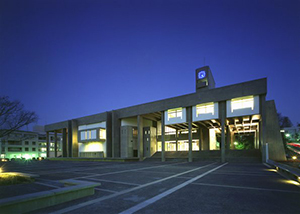Mr. Teerthal Patel
- From
- Maharashtra
- Degree
- 3rd year of master's course, School of Science, Nagoya University
Message
Please give a short introduction of yourself.
I am Teerthal Patel, an undergraduate student majoring in the G30 Physics program at Nagoya University currently residing in Japan as an international student. I am an Indian national with a residence in the city of Mumbai.
What is your favorite thing about Nagoya?
Compared to the city I come from, Mumbai, I find Nagoya really peaceful and at the same time extremely advanced in terms of civic amenities. Also, personally I enjoy the weather in Nagoya as it is comfortably cold and not as hot, comparatively speaking. The authentic historical sites, tourist spots, parks and forests are all an added bonus.
In what way has your impression of Nagoya or Japan changed since coming here?
I was under the impression that it would be hard to maintain an active social life as I thought the Japanese people to be reserved and I was also worried about the language barrier. Both these issues have been put to rest as I have found out that Japanese students and even the people as a whole are forthcoming, although shy and are really helpful even when my proficiency in the Japanese language was as good as null. Another fear that I initially had was that the cuisine change would be challenging but it could be further from the truth as I have discovered that Japanese cuisine is really good and the availability of all sorts of food products makes it easy to transition into a Japanese style cuisine or even establish means of cooking the food one desires.

What attracted you to choose Nagoya University as a place to study?
My focus as I applied to Nagoya University was to first and foremost my major of interest which is Physics. Through online research, I discovered that Japan as an international destination for University is underrated as far as the general consensus goes. Compared to most of the popular destinations for Indian students in the Western countries like the U.S.A , U.K, Germany, etc, education in Japan comes at a fraction of the total cost. At the same time, Nagoya University was ranked extremely high among the top universities in the world. In addition, Nagoya University has been doing cutting edge and interesting research in the field of Cosmology which is of my particular interest. Although there are universities pursuing these particular forms of research in India as well, it was in my opinion, that gaining access to these institutes was impractical and the prospect was shrouded in uncertainty.
In what way did you adjust yourself to Japanese culture?
Contrary to what many people believe and what many online articles and books made me believe, I really did not experience a cultural shock. In part, this may be because I am a secluded person with no explicit need to socialize actively or it may because of the social life that was set together with multiple other international students or the ease of access to the University with no particular worries regarding day to day life. Whatever may be the reasons, the transition to the Japanese culture with regards to the food, language or social life, it was either an easy one or one that did not require any particular effort due to contained life in the dorm and the University.
Please give a message to students or researchers in your home country who may be thinking about studying in Japan?
I may not have experienced the University life in India but I have an educated image in my mind. Without trying to make any form of comparisons between the institutes in India and Japan, I would like to just try and provide a perspective on the form of education in Japan. As I enter a lab and join my research group next semester on, I have already been made aware of way things work out here at Nagoya University or perhaps at any other Japanese University for that matter. In all the programs here, the first 3 years constitute academic classes with the last year dedicated to graduation research and this layout is the norm at all Japanese Universities. Another noteworthy factor is that most Japanese people that you would be working under or working with don’t believe in entitled qualifications and will rather give credit to hard work and dedication to any form of work that you may pursue. As far as cultural fears or discomfort related to food goes, I would strongly urge you to take the risk by being adventurous and try to explore out of your comfort zones. It is a hype right now for Indian students to pursue their higher education abroad and though everyone might be looking to get into western institutes, in my humble opinion, studying here in the Far East is much more attractive. To me, the lifestyle here is awesome and the credit goes to all things Japanese, may it be the beautiful natural locations outside cities that I like to bike in or trek, the anime and manga culture, the rich cultural heritage, the food, the largest metropolitans in the world, the active pursuit in competitive or casual sports and countless other things that you might discover for yourself. You might want to also take into account various other factors like the relatively low costs of education, the high demand for professional jobs in Japan, availability of infrastructure and funding through various sources for research or just the prospect of gaining experience, exposing yourself to a great culture , learning a new language, etc.

